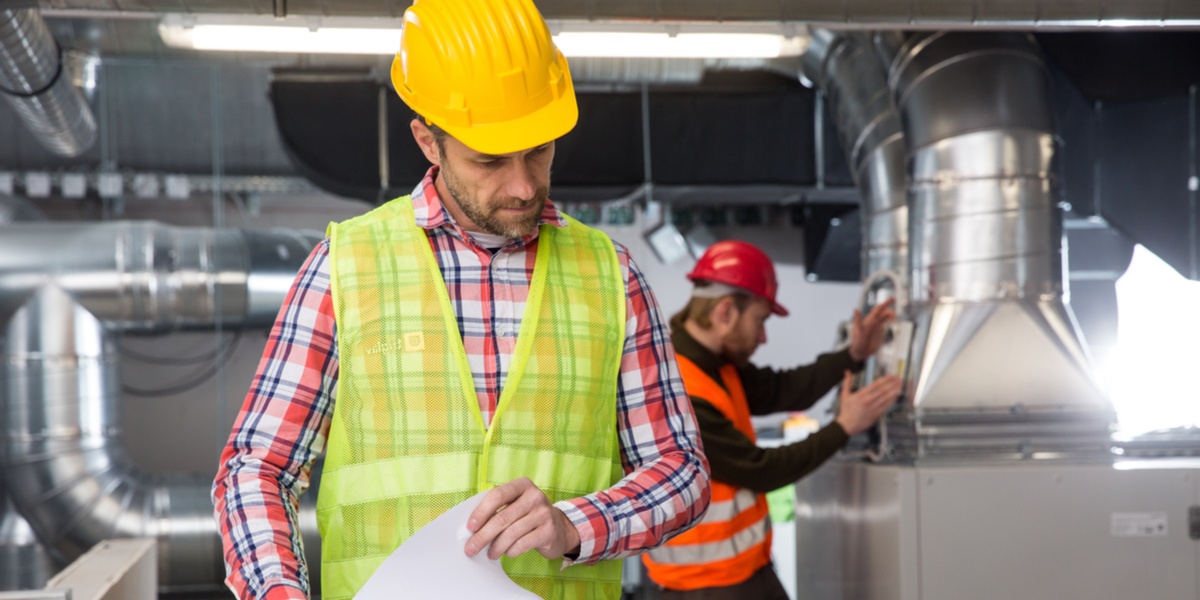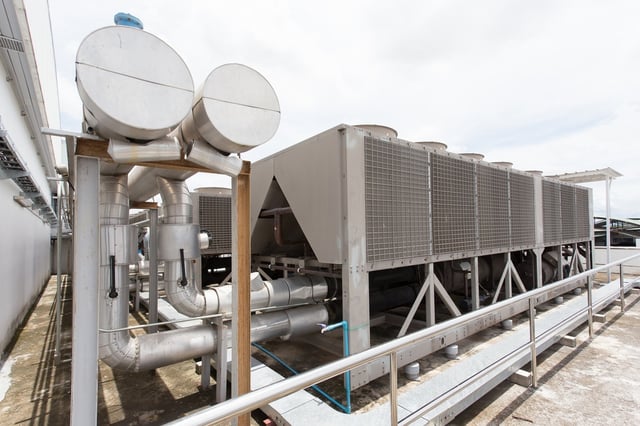Benefits of HVAC Engineering Services in NYC Buildings

As revealed by the Urban Green Council in its yearly energy and water use reports, NYC buildings use the largest share of their energy consumption for space heating and domestic hot water, where natural gas is the most common heat source. Building cooling also ranks among the largest loads, with lighting being the only electrical system with a higher consumption. Thus, HVAC engineering services can provide high value for property management companies, making heating and cooling systems more reliable and energy efficient. Consider that upgrading these systems does not only save energy, it also improves indoor conditions for occupants.
To get an idea of the benefits you can get from HVAC consulting services, consider all the positive attributes of a well-designed and well-maintained HVAC installation:
- It keeps indoor temperature and humidity within a range that is healthy for humans, making building interiors suitable for long-term occupancy.
- It provides indoor air quality (IAQ), ensuring a constant supply of fresh air and preventing the buildup of pollutants such as volatile organic compounds (VOC).
- It achieves the two benefits described above at an optimal energy cost. Although HVAC expenses can be expected to be high in a large building, there is no need for them to be excessively high.
Keep in mind that NYC also has a very demanding Energy Conservation Code, and compliance is mandatory for projects above certain size thresholds outlined in the code. Working with qualified HVAC engineers is the best way to ensure your property is code-compliant.
Improve your HVAC Performance with NY Engineers
If you are considering a major renovation, it represents a great chance to improve your HVAC installations. Under normal conditions, a deep HVAC retrofit can be highly disruptive for building operation. However, the building interior is taken apart anyway during a major renovation, so why not use the chance to improve key systems like HVAC?
HVAC Engineering Guarantees the Right Temperature and Humidity
We don’t think about temperature and humidity when they are adequate, but when they fall outside the range considered suitable for humans, we quickly feel discomfort. Poor temperature and humidity control can even lead to health issues, such as respiratory system diseases and skin irritation. Harmful organisms such as mold, dust mites and bacteria thrive in humid environments, adding to the health risk.
In many cases, especially older buildings, heating and cooling systems are sized based on “rules of thumb” instead of detailed HVAC engineering. There is a common misconception that oversizing equipment is good practice, but actually it leads to poor humidity control and fluctuating temperature. Oversized equipment also tends to run in shorter cycles, accelerating component wear and increasing maintenance expenses.
If HVAC equipment is properly installed, temperature and humidity stay within a range suitable for humans, and without drastic fluctuation. This improves health and comfort, and in business settings it also leads to increased productivity.
HVAC Engineering Improves Indoor Air Quality
Outdoor air is generally believed to be more polluted than indoor air, but research by the US Environmental Protection Agency indicates otherwise. On average, indoor air is 2 to 5 times more polluted than outdoor air, and this applies for urban and rural settings alike.
HVAC engineering not only guarantees adequate temperature and humidity; it also ensures that the building is properly ventilated. Consider that the NYC Mechanical Code establishes minimum airflow requirements depending on the type of building and number of occupants, and the HVAC system must make sure that the specified airflow is delivered.

When dealing with HVAC, ventilation cannot be addressed separately from heating and cooling equipment, since system components are constantly interacting with each other. In HVAC engineering, a whole-system approach yields much better performance than addressing different building systems in isolation. It is also important to note that ventilation efficiency measures deliver significant heating and cooling savings: if there is less air to heat or cool, energy requirements are reduced.
HVAC Engineering Improves Energy Efficiency
NYC has some of the highest electricity rates in the USA, and many HVAC system components run with electricity, including fans and air-conditioning units. Therefore, it is in your best interest to ensure this equipment consumes as little energy as possible.
Space heating and domestic hot water systems normally rely on natural gas or heating oil, which are a less expensive heat source than electricity, but are also a source of emissions. Since NYC has an ambitious emissions reduction goal of 80% by 2050, buildings will eventually have to cut down their fossil fuel consumption.
HVAC consulting services can help you find trouble spots in your building systems, allowing you to detect and prioritize the most promising building upgrades. If you want to reduce the energy expenses of your building, a targeted approach normally yields a much higher return on each dollar spent, compared with prescriptive measures.
HVAC Engineering Design & Consulting Services By NY Engineers
HVAC stands for heating, ventilation and air conditioning. These systems make built environments suitable for extended occupancy, and they are covered by HVAC engineering, which is a subfield of mechanical engineering.
Well-designed HVAC systems are fundamental in any building project, since they ensure a suitable temperature and a constant supply of fresh air for indoor locations. Also consider that HVAC systems have a high operating cost, so they must be designed as efficient as possible. In residential and commercial settings, HVAC systems consume more energy than all other equipment combined, and they are only surpassed by heavy industrial processes.
HVAC systems typically use multiple fuel inputs. Normally, air conditioning and ventilation only use electricity, but space heating systems use a combination of electricity and fossil fuels. Natural gas is the most common heat source for space heating and domestic hot water, but many installations use other fuels such as propane and heating oil. You can also have fully electric heating systems, but their running cost can be excessive if they are based on resistance – only energy-efficient heat pumps can match the running cost of gas-based heating.
Importance Of Load Calculation In HVAC Engineering
Before specifying chillers, boilers and air handling units, HVAC engineers must know the exact needs of the building. These loads are determined based on several building conditions.
- The ventilation system must supply fresh air and exhaust indoor air at a suitable rate. The required airflow depends on what each indoor space is used for, the floor area, and the number of occupants.
- Air conditioning and space heating systems are sized based on the cooling and heating loads that result from the local climate and building operation. HVAC equipment should be sized based on the calculated loads and not “rules of thumb”, since they lead to oversized and undersized installations.
By working with qualified HVAC engineers, you can make sure the heating, cooling and ventilation loads of your building are calculated properly. This way, you avoid investing in oversized equipment without losing performance. Optimally-sized HVAC equipment also tends to have the lowest ownership cost, providing long-term savings.
Additaional HVAC Performance Improvements
The best recommendation for HVAC systems is to use the right capacity, but there are ways to improve performance further. You can ask HVAC engineers to suggest equipment with a high energy efficiency rating, complemented with control systems to optimize their operation.
Energy efficiency ratings change depending on the specific type of HVAC equipment, but there is a common denominator: higher efficiency costs more, but long-term savings outweigh the additional cost. Energy ratings are calculated differently for each type of equipment, but a higher value always leads to a lower operating cost.
- Split-type air conditioners have the Seasonal Energy Efficiency Ratio (SEER)
- Furnaces and boilers have the Annual Fuel Utilization Efficiency (AFUE)
- Heat pumps have the Heating Seasonal Performance Factor (HSFP)
- Water heaters have the Energy Factor (EF).
HVAC performance can be improved further by using equipment controls. For example, the ventilation system can be ramped down when a building is not at full occupancy, and motor-driven equipment such as pumps and fans can be equipped with variable frequency drives (VFD) for speed control. A professional HVAC engineering firm can identify and suggest the most promising enhancements for your heating, ventilation and air conditioning equipment.
Final Recommendations
HVAC engineering services can help you detect opportunities to achieve significant savings, especially considering the high cost of energy in NYC. If your lighting installations have not been upgraded for a long time, also consider a lighting upgrade - you can achieve additional building cooling savings by reducing the heat output of lighting installations. In case you are considering a major renovation, it is also a good chance to improve the building envelope and achieve even higher HVAC savings.

Sanket Abhang
Sanket Abhang is a Plumbing and Fire Protection Design Engineer who holds a Mechanical Engineering Degree from the University of Mumbai, India. Recent projects include Community Access, Jackson Avenue, 330 Grand Street and many private residences & commercial kitchens.
Related Posts
Join 15,000+ Fellow Architects and Contractors
Get expert engineering tips straight to your inbox. Subscribe to the NY Engineers Blog below.



